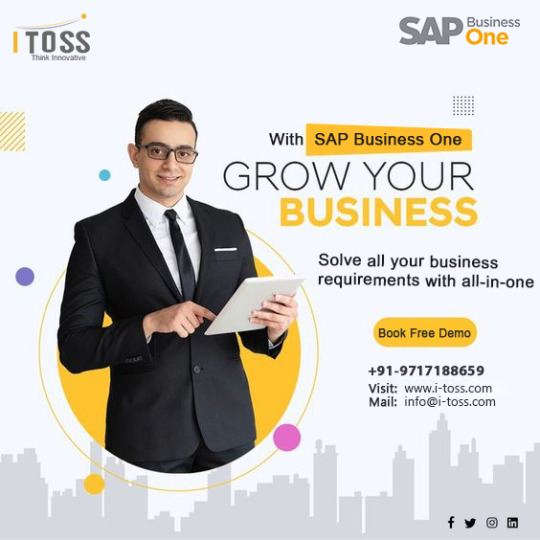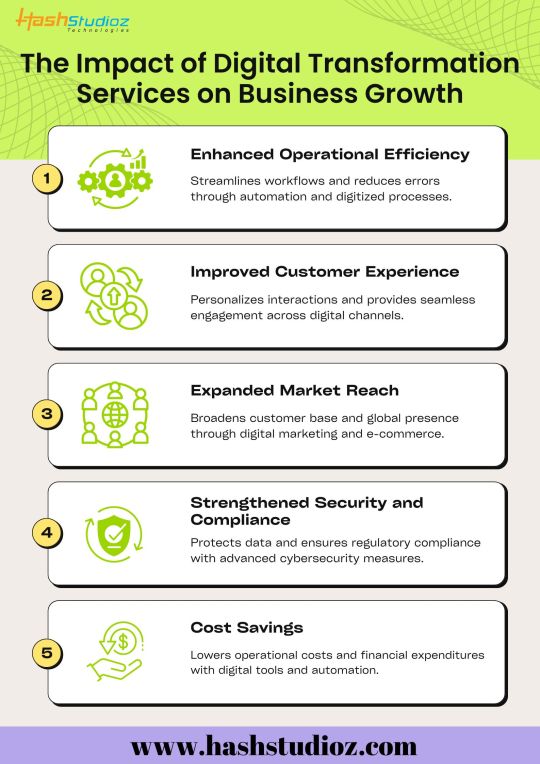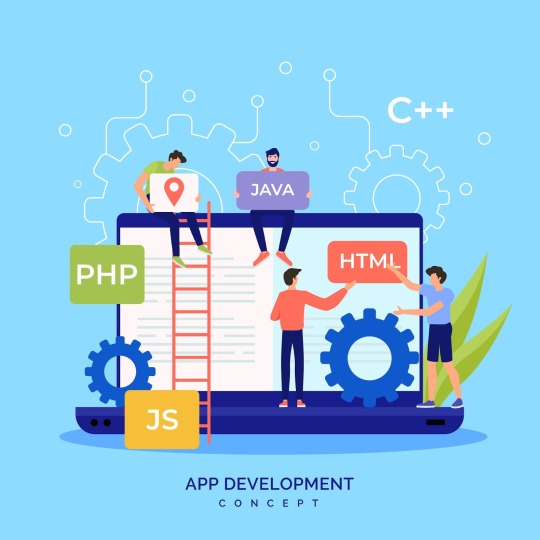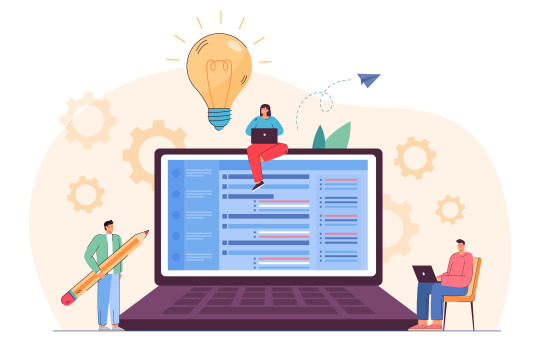#Enterprise Services company India
Text
#Microsoft Dynamics 365 CRM#CMS Development Company USA#Real-time application development#Microsoft dynamics 365 CRM solutions#Dynamics ERP Development USA#Enterprise Services Company India
0 notes
Text
SAP Business One for Chemical Industry

With all its benefits, global chemical manufacturing companies are incorporating SAP B1 at an increased rate for chemical production. Not only does it help in improving business efficiency and enhancing collaboration but it also aids in increasing customer satisfaction and increasing revenue by up to 10-30%. With the change in business dynamics and fluctuations in demand, robust ERP software can empower chemical businesses to take advantage of their competition while adhering to safety, quality, and compliance requirements. SAP b1 solutions are already used by nearly 6500 chemical industry businesses and more are soon to follow.
Managing costs effectively is an essential aspect of chemicals and any industry. In the chemical industry, SAP Business One provides intuitive planning and scheduling to manage time and resources efficiently and cut down on business costs to control every aspect. The cost of materials can also be estimated by analyzing the production data history and past purchases in a single click to simplify business processes. SAP chemical industry best practices optimize different processes, improve workflow efficiency, and reduce overtime costs by 48%.
#sap business one#SAP Business One Partner in India#SAP Business One partner#SAP Business One ERP Solution#SAP Business One for Manufacturers#SAP chemical industry#ERP Software#best erp software#best erp software in india#food beverage erp software#erp software for construction#erp#enterprise software#ERP Solution#SAP ERP#erp for small business#erp development company#erp consulting services#enterprise resource planning#erpsystem
2 notes
·
View notes
Text

Ready to grow your business? 🚀 Discover how Digital Transformation services are reshaping industries and driving innovation. Empower your company with the tools needed for success! 🌐
#BusinessGrowth#Innovation#Digital Transformation Services#Digital business transformation services#Digital transformation services and solutions#Digital Business Transformation#Digital transformation company#Digital transformation consulting#digital transformation solutions#enterprise digital transformation services#digital transformation solution#digital transformation services Company#digital transformation services india#digital transformation consulting provider#digital transformation consultants#digital transformation consulting firm India
0 notes
Text
#react native app development company india#custom enterprise software development#hire offshore developers#best mobile app development services#custom cms development#web app development#"software development services india
0 notes
Text
#Field Service management Software Development company#Software Development company in Chennai#Software development Company in India#Healthcare software development#Software Development Company in India#Medical database software Development#ERP Software development#Enterprise resource planning
0 notes
Text
Join a dynamic workplace of Karuna Group a reputed Enterprise Solution Development Company in Kolkata and Assam to shape your future.
0 notes
Text
Why is CEO Coaching Essential for MSMEs, SMEs and Large Enterprises?

You agree with the above thought. However, who would be able to challenge the CEO who is entirely convinced about his/her decision? Who will hold the top team accountable?
The dream of building a company starts with its founders and then the CEOs, followed by the managers and other folks. If there is someone to challenge and shape the thought process of founders, the organisations can evolve. Often, Founders and CEOs are surrounded by people who have minimal influence to challenge and question the top management’s views. As a result, many a time, certain decisions need to be made more clear.
CEOs can become isolated at the top, surrounded by people who may hesitate to challenge their ideas. A coach provides an external, objective perspective and can ask tough questions, helping CEOs see blind spots and consider alternative viewpoints.
Here are our perspectives on the importance of Coaching the CEOs:- https://grovalselectia.com/why-is-ceo-coaching-essential-for-msmes-smes-and-large-enterprises/
#executive coaching industry in india#executive coaching in india#executive coaching company#executive business coaching services#msme business coach#MSMEs and SMEs#Large Enterprises#Succession Planning#Personal Growth#Accountability
0 notes
Text
About Ivotiontech | Web and App Development Company USA
#Website Development Company USA#Front-End Development Services#Web Development Company USA#Website Design & Development Services#Cloud Application Development#Enterprise Services company India#Digital Marketing Company in USA
0 notes
Text
Top 10 Things Every App Developer Should Learn in 2023
I. Introduction
A. Importance of continuous learning in app development
B. Overview of the evolving landscape of app development
II. Embracing Emerging Technologies
A. Exploring the potential of augmented reality (AR) in app development
B. Understanding the integration of artificial intelligence (AI) in mobile apps
C. Harnessing the power of blockchain for enhanced security and transparency
III. Mastering Cross-Platform Development
A. Utilizing frameworks like React Native for efficient cross-platform app development
B. Exploring the benefits of Flutter for creating beautiful and performant apps
C. Understanding the role of Xamarin in building native-like experiences
IV. Enhancing User Experience (UX) Design
A. Importance of intuitive and user-friendly interfaces
B. Incorporating micro-interactions for delightful user experiences
C. Implementing personalization and customization features
V. Keeping Up with Progressive Web Apps (PWAs)
A. Understanding the advantages of PWAs over traditional web apps
B. Exploring the key technologies behind PWAs, such as service workers and web manifest
C. Optimizing performance and offline capabilities in PWAs
VI. Security and Data Privacy
A. Implementing robust security measures to protect user data
B. Adhering to privacy regulations and best practices
C. Incorporating encryption techniques to safeguard sensitive information
VII. Emphasizing App Performance
A. Optimizing app loading times and responsiveness
B. Implementing efficient caching mechanisms
C. Monitoring and analyzing app performance using tools and metrics
VIII. Understanding Cloud Technologies
A. Leveraging cloud computing for scalable and flexible app infrastructure
B. Exploring serverless architecture for cost-effective app development
C. Implementing cloud storage and synchronization for seamless user experiences
IX. Integrating Internet of Things (IoT) Functionality
A. Exploring the possibilities of IoT in app development
B. Connecting mobile apps with smart devices for enhanced automation
C. Addressing the challenges of security and interoperability in IoT-enabled apps
X. Embracing DevOps Practices
A. Streamlining app development and deployment processes
B. Implementing continuous integration and delivery (CI/CD) pipelines
C. Monitoring and analyzing app performance in production environments
XI. Conclusion
A. Recap of the top 10 things every app developer should learn in 2023
B. Encouragement to embrace continuous learning and adapt to industry changes
Now, without further ado, let's dive into the complete article on the topic "Top 10 Things Every App Developer Should Learn in 2023":
Top 10 Things Every App Developer Should Learn in 2023

Introduction
In the ever-evolving landscape of app development, continuous learning is paramount for developers to stay ahead of the curve and deliver cutting-edge solutions. As new technologies and trends shape the industry, app developers need to adapt and acquire the necessary skills to create remarkable experiences for their users. In this article, we will explore the top 10 things that every app developer should learn in 2023, ensuring they are equipped with the knowledge and expertise required to thrive in a competitive market.
I. Embracing Emerging Technologies
Exploring the potential of augmented reality (AR) in app development
Augmented reality has emerged as a game-changer, blurring the line between the digital and physical worlds. App developers who grasp the capabilities of AR can unlock a multitude of possibilities, such as interactive product experiences, immersive gaming, and engaging educational apps. By understanding AR frameworks and implementing AR features, developers can create captivating apps that provide unique and innovative experiences for users.
Understanding the integration of artificial intelligence (AI) in mobile apps
AI has revolutionized various industries, and its integration into mobile apps can greatly enhance their functionality and user experience. By learning about AI algorithms, machine learning, and natural language processing, app developers can leverage AI to develop intelligent apps that offer personalized recommendations, predictive analytics, and conversational interfaces.
Harnessing the power of blockchain for enhanced security and transparency
Blockchain technology is not limited to cryptocurrencies; it can also be applied to app development to improve security and transparency. App developers who familiarize themselves with blockchain concepts, such as decentralized storage, smart contracts, and consensus algorithms, can build decentralized apps (DApps) that provide secure and tamper-proof environments for data transactions and interactions.
II. Mastering Cross-Platform Development
Utilizing frameworks like React Native for efficient cross-platform app development
Cross-platform development frameworks like React Native enable app developers to write code once and deploy it across multiple platforms. By understanding React Native's components, libraries, and ecosystem, developers can build apps that deliver a native-like experience on both iOS and Android, reducing development time and effort.
Exploring the benefits of Flutter for creating beautiful and performant apps
Flutter, Google's UI toolkit, has gained significant popularity for its ability to create visually stunning and high-performance apps. App developers who delve into Flutter's widget-based architecture and expressive programming language can build apps with smooth animations, customizable interfaces, and excellent performance across different devices.
Understanding the role of Xamarin in building native-like experiences
Xamarin allows developers to build cross-platform apps using a single codebase while delivering native-like experiences. By mastering Xamarin's development environment, developers can leverage shared code and platform-specific integrations to create apps that seamlessly integrate with the underlying operating systems, delivering a consistent experience to users.
III. Enhancing User Experience (UX) Design
Importance of intuitive and user-friendly interfaces
User experience design is a critical aspect of app development. App developers should focus on creating intuitive and user-friendly interfaces that prioritize ease of use and accessibility. By understanding UX design principles, information architecture, and usability testing techniques, developers can ensure their apps provide a smooth and enjoyable user experience.
Incorporating micro-interactions for delightful user experiences
Microinteractions refer to small, subtle animations or visual feedback that occur within an app. These interactions add a touch of delight and enhance the overall user experience. App developers who master the art of designing and implementing micro-interactions can create apps that feel responsive, engaging, and satisfying to use.
Implementing personalization and customization features
Users appreciate personalized experiences that cater to their preferences and needs. By incorporating personalization and customization features into apps, developers can offer tailored content, recommendations, and settings that adapt to each user's unique requirements. Understanding user data analysis, segmentation techniques, and dynamic content delivery can empower developers to create highly personalized apps.
IV. Keeping Up with Progressive Web Apps (PWAs)
Understanding the advantages of PWAs over traditional web apps
Progressive Web Apps (PWAs) combine the best of web and mobile app technologies, providing an app-like experience directly from a web browser. App developers who grasp the advantages of PWAs, such as offline functionality, push notifications, and device hardware access, can leverage this technology to reach a broader audience and deliver app-like experiences without the need for installation.
Exploring the key technologies behind PWAs, such as service workers and web manifest
Service workers and web manifest are essential technologies that power PWAs. By understanding service worker APIs and their role in offline caching and background synchronization, developers can create PWAs that function seamlessly, even without an active internet connection. Additionally, familiarity with web manifest files and their configuration allows developers to define app metadata, icons, and splash screens, enhancing the overall user experience.
Optimizing performance and offline capabilities in PWAs
Performance plays a crucial role in the success of PWAs. App developers should focus on optimizing the loading speed, responsiveness, and resource consumption of their PWAs. Implementing efficient caching strategies, lazy loading techniques, and utilizing offline storage options can ensure smooth and reliable experiences for users, regardless of network conditions.
V. Security and Data Privacy
Implementing robust security measures to protect user data
App developers must prioritize the security of user data by implementing robust security measures. This includes utilizing secure coding practices, encryption algorithms, and secure communication protocols. By staying updated on the latest security vulnerabilities and industry best practices, developers can safeguard user information and build trust with their audience.
Adhering to privacy regulations and best practices
With increased awareness of data privacy, app developers must comply with privacy regulations, such as the General Data Protection Regulation (GDPR) and California Consumer Privacy Act (CCPA). Understanding the legal requirements, user consent mechanisms, and data handling practices is crucial to ensure app compliance and protect user privacy.
Incorporating encryption techniques to safeguard sensitive information
Encryption is a fundamental technique for protecting sensitive data in transit and at rest. App developers should be well-versed in encryption algorithms, secure key management, and secure storage practices. By implementing encryption effectively, developers can add an extra layer of security to their apps, making it significantly harder for unauthorized parties to access sensitive information.
VI. Emphasizing App Performance
Optimizing app loading times and responsiveness
App performance is a key factor in user satisfaction. Developers should focus on optimizing app loading times by minimizing network requests, compressing assets, and utilizing caching mechanisms. Additionally, optimizing responsiveness through efficient UI rendering, background processing, and thread management ensures a smooth and lag-free user experience.
Implementing efficient caching mechanisms
Caching plays a vital role in app performance. By implementing intelligent caching mechanisms, developers can store and retrieve frequently accessed data locally, reducing network latency and improving overall app speed. Understanding caching strategies, cache invalidation techniques, and leveraging browser caching options can significantly enhance app performance.
Monitoring and analyzing app performance using tools and metrics
Continuous monitoring and analysis of app performance are crucial for identifying bottlenecks, optimizing resource usage, and improving user experience. App developers should familiarize themselves with performance monitoring tools and relevant metrics such as response time, CPU and memory utilization, and network performance. By using these insights, developers can make data-driven optimizations and deliver high-performing apps.
VII. Understanding Cloud Technologies
Leveraging cloud computing for Scalable and flexible app infrastructure
Cloud computing offers a scalable and flexible infrastructure for app deployment and backend services. App developers should understand cloud providers, such as Amazon Web Services (AWS), Microsoft Azure, and Google Cloud Platform (GCP). By leveraging cloud services like serverless computing, managed databases, and auto-scaling, developers can build apps that scale seamlessly and handle varying workloads efficiently.
Exploring serverless architecture for cost-effective app development
The serverless architecture eliminates the need to manage servers, allowing developers to focus solely on app logic. By understanding serverless concepts, and event-driven architecture, and utilizing Function-as-a-Service (FaaS) platforms like AWS Lambda and Azure Functions, developers can build cost-effective apps that automatically scale based on demand, without the overhead of managing infrastructure.
Implementing cloud storage and synchronization for seamless user experiences
Cloud storage and synchronization enable seamless data access and collaboration across multiple devices. App developers should explore cloud storage options, such as Amazon S3, Google Cloud Storage, and Dropbox, to store and sync user data securely. By implementing cloud storage and synchronization mechanisms, developers can ensure that user data is accessible from anywhere, providing a seamless and consistent experience across devices.
VIII. Integrating Internet of Things (IoT) Functionality
Exploring the possibilities of IoT in app development
The Internet of Things (IoT) opens up new avenues for app developers to create innovative and interconnected experiences. Understanding IoT concepts, protocols (such as MQTT and CoAP), and device integration frameworks (such as AWS IoT and Google Cloud IoT) allows developers to build apps that interact with smart devices, collect sensor data, and enable automation and remote control capabilities.
Connecting mobile apps with smart devices for enhanced automation
App developers should familiarize themselves with protocols and APIs used to connect mobile apps with smart devices, such as Bluetooth Low Energy (BLE), Zigbee, or Z-Wave. By integrating app functionality with smart home devices, wearables, or industrial IoT systems, developers can create apps that offer enhanced automation, monitoring, and control features.
Addressing the challenges of security and interoperability in IoT-enabled apps
IoT-enabled apps introduce unique challenges, including security vulnerabilities and device interoperability. App developers should be well-versed in IoT security best practices, secure device onboarding, and data encryption techniques. Additionally, understanding IoT interoperability standards, such as MQTT and RESTful APIs, helps ensure seamless communication between different devices and platforms.
IX. Embracing DevOps Practices
Streamlining app development and deployment processes
DevOps practices promote collaboration and efficiency throughout the app development lifecycle. App developers should adopt tools like Git, continuous integration servers (such as Jenkins or CircleCI), and version control practices to streamline code management and enable seamless collaboration among team members.
Implementing continuous integration and delivery (CI/CD) pipelines
Continuous integration and delivery (CI/CD) pipelines automate the build, testing, and deployment processes, ensuring the delivery of high-quality apps. App developers should learn to configure CI/CD pipelines using tools like Jenkins, Travis CI, or GitLab CI. By automating tests, code reviews, and app distribution, developers can accelerate the release cycle and maintain app quality.
Monitoring and analyzing app performance in production environments
Monitoring app performance in production environments helps identify performance issues, crashes, or bottlenecks. App developers should implement monitoring tools like New Relic, Datadog, or Prometheus to collect and analyze real-time app performance data. By proactively addressing performance issues, developers can optimize app stability, responsiveness, and user satisfaction.
Conclusion
In the fast-paced world of app development, continuous learning is essential to stay relevant and deliver exceptional experiences to users. The top 10 things every app developer should learn in 2023 encompass a broad range of skills and knowledge, from embracing emerging technologies like AR and AI to mastering cross-platform development, enhancing UX design, and prioritizing security and performance. By acquiring these skills and staying abreast of industry trends, app developers can unlock their full potential and create apps that stand out in a competitive market. Remember, the journey of learning is ongoing, and embracing continuous learning is key to future success in app development.
#mobile app development services#mobile app development company#mobile app development company in india#top mobile app development companies#mobile application development#blockchain app development company#enterprise application development
0 notes
Text

Boost your business with the right digital transformation services! Our ultimate checklist helps you choose the perfect partner, focusing on expertise, scalability, and more. Don’t miss out on achieving your goals. 🚀💼
#Digital Transformation Services#Digital business transformation services#Digital transformation services and solutions#Digital Business Transformation#Digital transformation company#Digital transformation consulting#digital transformation solutions#enterprise digital transformation services#digital transformation solution#digital transformation services Company#digital transformation services india#digital transformation consulting provider#digital transformation consultants#digital transformation consulting firm India
0 notes
Text
#finacus#Banking as a Service Provider#Financial Software Companies#banking solutions#enterprise solutions services#digital payment solution#mobile banking software company#banking and finance software solutions#core banking solution providers#aeps software provider#india
0 notes
Text
#custom enterprise software development services#software solutions company in india#it support managed services provider#website design and development services#it modernization consulting services
0 notes
Text

#custom-software-development-company#custom-software-development-service#custom-application-development-company#custom-application-development-services#enterprise-software-development-company#software-development-outsourcing-companies#custom-software-development-firm#custom-software-application-development#software-development-services-company#software-development-company-india#custom-software-development-services-india#custom-software-development-in-india#software-development-company-us#best-custom-software-development-company#Hire-Software-Developer
0 notes
Photo

In the era of Advanced Technologies all business organizations are demanding regular growth. An Enterprise Web App plays major role to expand your business path through online. Software Development Service in India is easy now, works with various foreign clients & also provides IT services. Enterprise web app can generate business leads from global audience. https://innovaindia.wordpress.com/2022/11/04/achieving-business-goals-and-objectives-with-a-enterprise-web-app-development/
#Enterprise Web App Development#Software Development Service in India#Software developemt company India#Custom software development agency
0 notes
Text
Web & App Development Company USA | Enterprise Solutions Provider| Ivotiontech
Ivotiontech is a leading web & app development company in USA, specialized in enterprise solutions, software outsourcing, digital marketing & more. Get quality services from experienced developers with UI/UX design & Magento development.
#Web Development Company USA#Mobile App Development Company USA#UI/UX Design Company USA#Magento development services#Front-End Development Services#Enterprise Services company India#Software Outsourcing#Digital Marketing Company in USA
1 note
·
View note
Text
Which is the best software development company in India?
Software development refers to the process of creating, designing, coding, testing, and maintaining computer programs and applications. It involves a combination of technical skills, problem-solving abilities, and creativity to develop software that meets specific requirements and solves various user needs.

Here are several top software development companies in India known for their expertise, quality of work, and customer satisfaction.
Here are a few notable ones:
Infosys: Infosys is a renowned global IT services and consulting company headquartered in Bangalore, India. They provide a wide range of software development services, including application development, maintenance, and testing, utilizing various technologies and frameworks.
Tata Consultancy Services (TCS): TCS is one of the largest IT services and consulting companies in India. They offer comprehensive software development solutions, leveraging their expertise in various domains and technologies, including enterprise applications, cloud computing, artificial intelligence, and more.
Softlabs Group: Softlabs Group is a leading global information technology, consulting, and business process services company based in Mumbai, India. They have a strong focus on software development, offering services such as application development, integration, maintenance, and IT Outsourcing across various industries.
HCL Technologies: HCL Technologies is a multinational IT services and consulting company with a strong presence in India. They provide software development services encompassing application development, product engineering, testing, and digital transformation, catering to diverse industry sectors.
Mindtree: Mindtree is an international technology consulting and services company headquartered in Bangalore, India. They specialize in agile software development, offering services in areas such as application development, mobile development, testing, and cloud solutions.
These companies are just a few examples, and there are numerous other software development companies in India with diverse capabilities and specialities. It's important to evaluate their expertise, past projects, client reviews, and specific requirements to choose the best fit for your software development needs.
#custom software development#custom software development company in mumbai#custom software development services#custom software development company in india#enterprise software development company#enterprise application development
0 notes